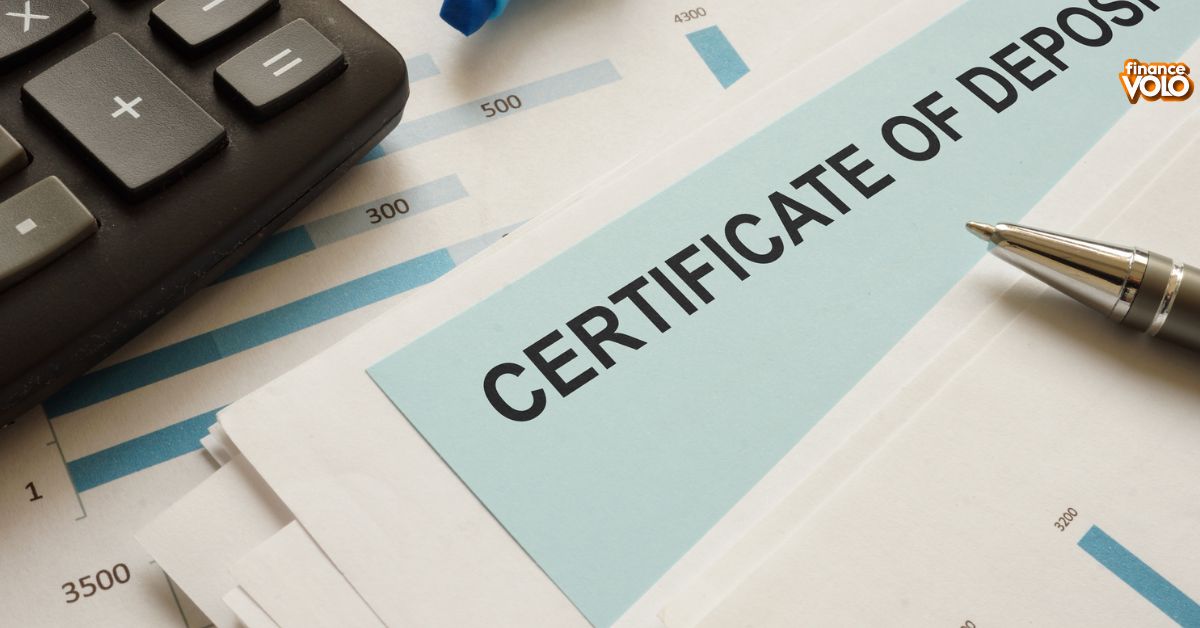CD in banking stands for Certificate of Deposit, a financial product where money is deposited for a fixed period, typically yielding higher interest rates than regular savings accounts.
Discover the power of CDs in banking! CD stands for Certificate of Deposit, a secure investment option offering higher interest rates than regular savings accounts. By depositing your money for a fixed term, you can watch your funds grow steadily. Explore how CDs can help you achieve your financial goals today
How do CDs work?
Certificates of Deposit (CDs) work by allowing you to deposit a sum of money with a bank for a predetermined period, typically ranging from a few months to several years. During this time, the bank pays you interest on your deposit, which is often higher than what you would earn in a regular savings account.
Once the CD reaches its maturity date, you can withdraw your initial deposit along with the accrued interest. However, if you withdraw your money before the maturity date, you may incur penalties, such as forfeiting a portion of the interest earned. CDs offer a safe and predictable way to grow your savings over time while providing a guaranteed return on your investment.
How to choose a CD
When choosing a CD, consider the length of time you’re comfortable locking away your money, as longer terms typically offer higher interest rates. Compare the interest rates and terms offered by different banks to ensure you’re getting the best deal.
Evaluate the penalties for early withdrawal and make sure they align with your financial goals and potential needs. Finally, check the bank’s reputation for reliability and customer service to ensure a smooth experience throughout the duration of your investment.
When to choose a CD
Choose a CD when you have a lump sum of money that you won’t need immediate access to and want to earn a higher interest rate than a regular savings account. CDs are ideal for those with a low-risk tolerance who prioritize preserving their principal while earning steady returns over time.
Consider investing in a CD when interest rates are expected to remain stable or rise, as this can lock in a favorable rate for the duration of your investment. If you’re saving for a specific future expense, such as a down payment on a house or a child’s college education, a CD can help you reach your financial goals with certainty.
What types of CDs are there?
Here are some types of CDs are there
Traditional CDs
These are the most common type of CDs. You deposit a fixed amount of money for a specific term, such as 6 months, 1 year, 5 years, etc. The bank pays you interest on the money, and you cannot withdraw the funds until the CD matures without incurring a penalty.
Jumbo CDs
Jumbo CDs are similar to traditional CDs but require a larger minimum deposit, often $100,000 or more. In return for the larger deposit, you may receive a higher interest rate compared to traditional CDs.
Bump-up CDs
With bump-up CDs, you have the option to request a higher interest rate if the bank’s rates increase during the term of your CD. This allows you to take advantage of rising interest rates without having to open a new CD.
Liquid CDs
Liquid CDs allow you to withdraw a portion of your funds without penalty before the CD matures. However, there are typically restrictions on how much you can withdraw and when you can do so.
What is a CD ladder?
A CD ladder is a strategy where you stagger the maturity dates of multiple CDs, typically by investing in CDs with different terms, such as 6 months, 1 year, 2 years, and so on. This approach allows you to have access to a portion of your funds at regular intervals while still taking advantage of higher interest rates on longer-term CDs.
Creating a CD ladder, you can maintain liquidity by regularly reinvesting maturing CDs into new ones with longer terms, thereby ensuring a steady stream of income while maximizing your overall return on investment. This strategy provides both flexibility and stability, making it a popular choice for individuals looking to balance their need for access to funds with the desire to earn competitive interest rates.
Certificate of deposit benefits
- Higher Interest Rates: Typically, CDs offer higher interest rates compared to regular savings accounts, enabling faster growth of your funds.
- Low Risk: CDs are considered low-risk investments since they are insured by the FDIC or NCUA, ensuring the safety of your principal.
- Diverse Terms: CDs come with various term options, allowing you to choose the one that aligns with your financial goals and timeline.
- Income Stream: With a CD ladder, you can create a steady income stream by regularly reinvesting maturing CDs into new ones.
- Capital Preservation: CDs help preserve your capital while still earning interest, making them suitable for conservative investors.
- Flexible Options: Some banks offer flexible CD options, such as bump-up CDs or liquid CDs, providing additional flexibility to meet your needs.
- Tax Advantages: Depending on the type of CD and your financial situation, you may enjoy tax benefits, such as tax-deferred growth or tax-exempt status for certain CDs.
How can you open a certificate of deposit?
Open a certificate of deposit (CD), start by researching banks or credit unions that offer CDs with terms and rates that suit your needs. Then, visit the bank’s branch or website and fill out an application, providing personal information and funding details.
Once your application is approved, deposit the desired amount of money into the CD account, and the bank will issue a certificate confirming your investment. Finally, keep track of your CD’s maturity date to ensure you withdraw your funds or reinvest them according to your financial goals.
Related post: Which Of These Is A Banking Activity Of The Fed?
Can I add money to a CD?
Yes, you can add money to a CD in some cases, but it depends on the bank’s policies. Some banks offer add-on CDs that allow you to deposit additional funds during a specified period after opening the account.
Check with your bank to see if they offer add-on CD options, and if so, inquire about any restrictions or limitations. Adding money to a CD can help you maximize your savings and potentially earn more interest over time.
What happens when a CD matures?
When a CD matures, the initial term of the deposit comes to an end, and you have several options.. You can withdraw the principal amount along with any accrued interest. Secondly, you can roll over the funds into a new CD with the same or different terms.
If you don’t take any action, some banks automatically renew the CD for the same term length, while others may transfer the funds into a savings account. It’s essential to review your options and consider your financial goals before the CD matures to make the most suitable decision.
CDs vs. savings accounts
Here’s a simple table comparing CDs and savings accounts.
| Aspect | Certificate of Deposit (CD) | Savings Account |
|---|---|---|
| Interest Rate | Typically higher | Lower |
| Access to Funds | Limited access until maturity date | Immediate access |
| Risk | Low risk | Low risk |
| FDIC/NCUA Insured | Yes | Yes |
| Minimum Balance | Typically higher | Typically lower |
| Term Length Options | Fixed terms | No fixed terms |
| Penalty for Early Withdrawal | Yes | No |
| Potential for Growth | Higher potential for growth | Lower potential for growth |
When to stick with a savings account
Sticking with a savings account is preferable when you prioritize accessibility to your funds. Savings accounts offer immediate access to your money without any penalties for early withdrawal, making them ideal for emergencies or short-term savings goals.
If you prefer flexibility in managing your funds and don’t want to commit to a fixed term, a savings account is the better option. Savings accounts are suitable for individuals who prefer to maintain a lower minimum balance or want to deposit and withdraw funds freely without restrictions.
Related post: What Does Ach Stand For In Banking?
High CD rates for now
High CD rates for now offer a compelling opportunity to lock in attractive returns on your savings. By taking advantage of these elevated rates, you can maximize the growth of your money over the CD’s term, providing a stable source of income or helping you reach your financial goals faster.
With the current high CD rates, now is an opportune time to explore CD options and secure a competitive rate. Whether you’re saving for a major purchase or seeking to diversify your investment portfolio, high CD rates provide a valuable opportunity to optimize your financial strategy and increase your overall returns.
See CD rates by term and type
Explore CD rates by term and type to find the best option for your savings goals. By comparing rates across different terms and types of CDs, you can identify opportunities to maximize your returns and grow your money over time.
Whether you’re interested in short-term CDs for quick access to funds or long-term CDs for higher interest rates, seeing rates by term and type allows you to make informed decisions about where to invest your savings. Take advantage of this information to optimize your CD investment strategy and achieve your financial objectives with confidence.
Frequently Asked Questions
What does CD stand for?
CD stands for Certificate of Deposit.
What is a Certificate of Deposit?
A Certificate of Deposit (CD) is a financial product offered by banks where you deposit money for a fixed period in exchange for a predetermined interest rate.
How do CDs work?
CDs work by depositing a sum of money with a bank for a set period, typically ranging from a few months to several years, and earning interest on the deposit.
Are CDs safe?
Yes, CDs are considered safe investments as they are typically insured by the FDIC (for banks) or the NCUA (for credit unions), protecting your principal investment.
What are the benefits of investing in CDs?
Some benefits of investing in CDs include guaranteed returns, higher interest rates compared to regular savings accounts, and low risk due to their insured status.
Related post: what is apy in banking?
Final Words
In banking, CD stands for Certificate of Deposit. It’s a financial product where you deposit a certain amount of money with a bank or credit union for a fixed period, typically ranging from a few months to several years. In return, you receive a predetermined interest rate on your deposit, and upon maturity, you can withdraw your initial deposit along with the accrued interest.
CDs work by providing a safe and secure way to grow your savings over time. They offer higher interest rates compared to regular savings accounts and are considered low-risk investments since they are often insured by the FDIC (for banks) or the NCUA (for credit unions), ensuring the safety of your principal investment. CDs are suitable for individuals looking to earn a guaranteed return on their savings while preserving their capital.













